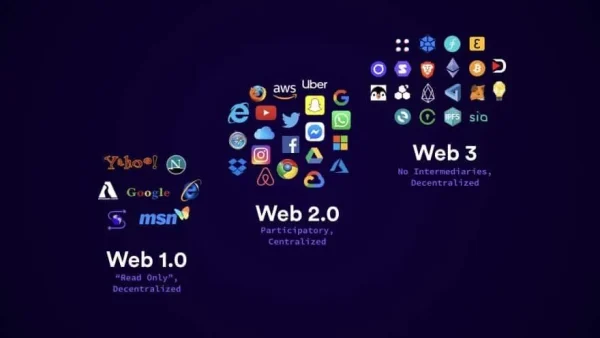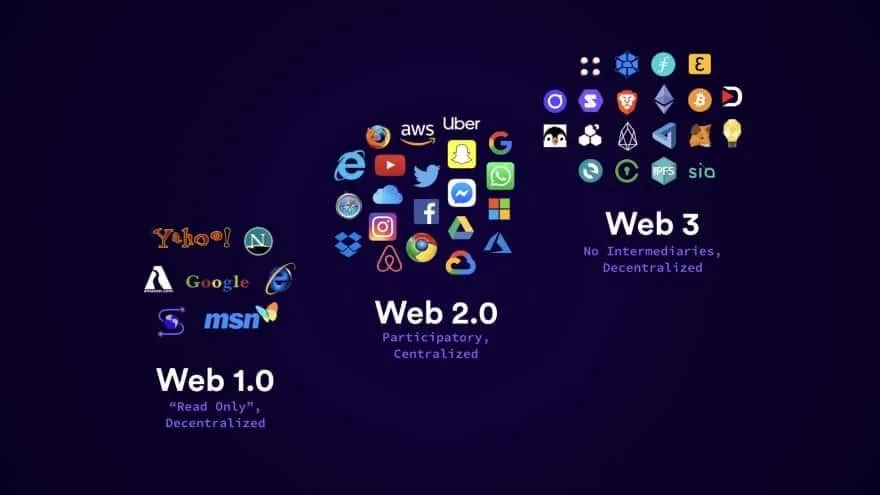What is Blockchain?
Created to introduce Bitcoin, blockchain technology has grown far beyond cryptocurrencies, with the potential to impact various industries through its unique features.
This article will explain blockchain, its main features, types, how it works, its advantages, disadvantages, and future potential.
Table of content
Key Takeaways
- Blockchain is a decentralized digital ledger that records transactions across many computers.
- Blockchain stores transaction data in blocks connected in a secure chain.
- Blockchain is decentralized, meaning no single authority controls it.
- Blockchain offers transparency, security, and immutability.
- Blockchain is used in various areas, such as cryptocurrency, supply chains, healthcare, smart contracts, and voting.
- Blockchain has advantages like increased security, lower costs, and efficiency.
Definition of Blockchain
Blockchain is a decentralized digital ledger that records transactions securely across a network of computers. It provides transparency, security, and immutability, making it ideal for cryptocurrencies, smart contracts, and various decentralized applications.
How Blockchain Works
Blockchain works by storing transactions in blocks connected in a chain. Each block contains a cryptographic link to the previous block, ensuring the data is secure and cannot be changed.
Each block holds transaction data, a timestamp, and a cryptographic code that links it to the block before it. The blocks are connected in order, creating a secure chain that cannot be altered.
Note: In blockchain technology, a block is a collection of data or transactions grouped, verified, and then added to a decentralized ledger, forming part of a chain of blocks. Blockchain functions through a decentralized network maintained by multiple computers, known as nodes.
A copy of the blockchain is stored on many computers (nodes) within the network, ensuring that no single party controls the data or can tamper with it.
Decentralization
Decentralization in blockchain means that control is not in the hands of a single authority, like a bank or government. Instead, multiple participants, called nodes, verify and maintain the network. This spreads power across the network, making it more secure and less prone to manipulation.
Unlike traditional systems controlled by one central authority, blockchain is maintained by a network of computers worldwide. This decentralization increases blockchain security, reduces the chance of fraud, and eliminates the need for intermediaries.
Key Features Of Blockchain
Blockchain technology offers key features that make it an increasingly valuable tool for secure and transparent data management.
Blockchain Database Transparency
Blockchain adds transparency by making all transactions in the blockchain database visible to every participant in the network. Each transaction is recorded in a public ledger, which anyone can verify. This openness builds trust, as actions on the blockchain are traceable and accountable.
Security Of Blockchain Transaction
Blockchain security relies on advanced cryptographic techniques to protect data. Multiple nodes encrypt and validate transactions, making unauthorized changes extremely difficult. This decentralized validation process adds a strong layer of protection against fraud and hacking.
Blockchain Immutability
Once a transaction is recorded in a blockchain, it cannot be changed or deleted. This immutability ensures that the data remains permanent and trustworthy. It prevents tampering, making the blockchain a reliable and unalterable source of information.
Blockchain Use Cases
Blockchains are used in various ways, including cryptocurrency, supply chains, smart contracts, healthcare, and voting.
Blockchain and Cryptocurrency
Blockchain is the core technology behind cryptocurrencies like Bitcoin. It allows secure and transparent transactions without the need for a bank. Each transaction is recorded in a public ledger, which prevents fraud and double spending.
Supply Chains
In supply chains, blockchain helps track products from production to delivery. Each step is recorded on the blockchain, making it easy to see where a product has been. This reduces fraud and adds quality, as everything is traceable.
Smart Contracts
Blockchain powers smart contracts, which are automated agreements written in code. When conditions are met, the contract executes itself without needing middlemen, making transactions faster, cheaper, and more reliable.
Healthcare
Blockchain is used in healthcare to store and share medical records securely. Patients control who can access their data, keeping it private. It also tracks the movement of medicines, ensuring they are real and not counterfeit.
Voting
Blockchain can be used for secure and transparent voting systems. Each vote is recorded and cannot be changed, making elections more trustworthy, preventing tampering, and ensuring every vote is counted.
Pros and Cons of Blockchain
Like any technology, blockchain has its advantages and disadvantages. It offers benefits like security and transparency but faces challenges such as scalability and energy use.
| Pros | Cons |
| Enhanced Security | Scalability |
| Transparency | Energy Consumption |
| Reduced Costs | Regulation |
| Efficiency | Complexity |
Conclusion
Blockchain is an innovative technology with the potential to change entire industries by improving security, transparency, and efficiency.
Whether you’re tracking transactions with a block explorer, learning about blockchain use cases, or exploring blockchain history, there are endless possibilities for how blockchain can be applied.
For those wanting to explore further, many blockchain books and tutorials are available to dive deeper into blockchain ecosystem. We recommend reading blockchain books like “Blockchain Revolution” by Don Tapscott or “Blockchain Basics” by Daniel Drescher.
As blockchain and cryptocurrency continue to grow, they will play an even more important role in shaping the future of digital transactions and data management.






